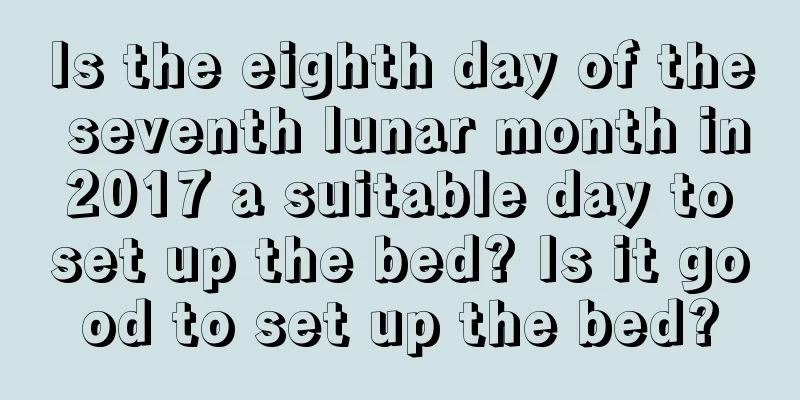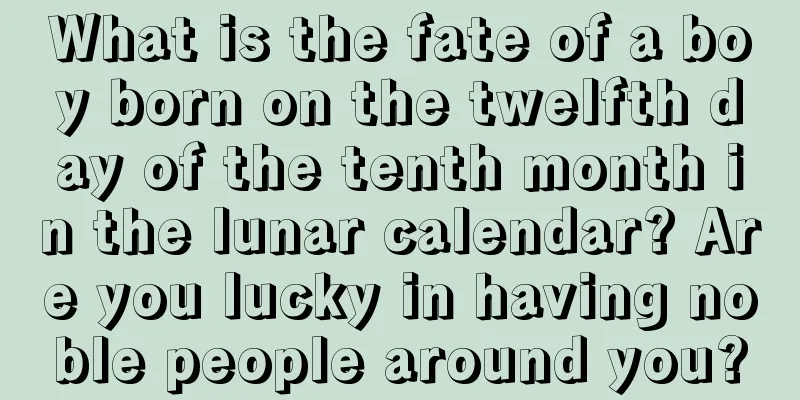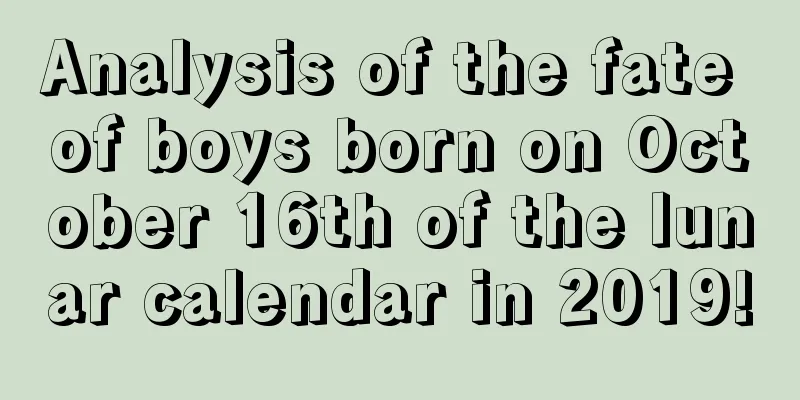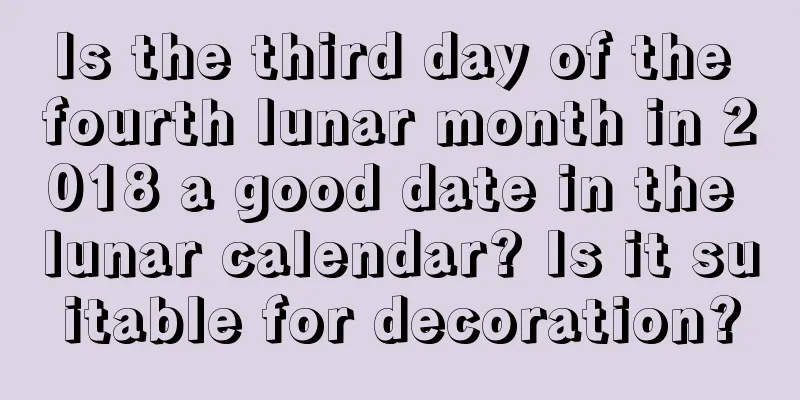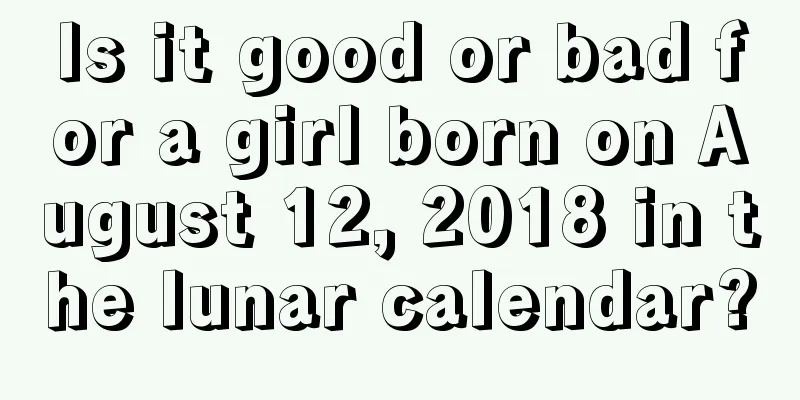What are some proverbs about Jingzhe?

Jingzhe is one of the 24 solar terms in China and also a very important solar term in spring. In ancient times, people often went to the fields to sow seeds and started farming when this solar term came. There are quite a few proverbs about Jingzhe. Let’s take a look. The Fortune Teller website provides you with more information related to the first month of the lunar calendar in 2018. You are welcome to learn more about it!What are some proverbs about Jingzhe?(1) The sound of thunder during the Waking of Insects is like mud.Meaning: Thunder on the Jingzhe day indicates that the solar term is correct, the weather is favorable, the rice harvest is good, and the price of rice is cheap. (2) If there is thunder before the Waking of Insects, the clouds will not clear for 49 days. Meaning: This is a proverb in Hangzhou area. If there is thunder and rain before the Waking of Insects season, it is easy to cause cold and rainy weather. (3) Before the thunderstorm, it is a good time to plant crops in the mountains. Meaning: This is a proverb from mountainous areas. Thunder and rain before the Waking of Insects season make it easier to grow crops in mountainous areas. Because farmland in mountainous areas has good drainage, it is beneficial to the growth of crops. (4) During the Waking of Insects, the north wind blows, and winter begins anew. Meaning: During the Jingzhe period, the north wind will blow and the temperature will drop suddenly. (5) If the south wind blows during the Waking of Insects period, the rice seedlings will be planted late. Meaning: The south wind blows during the Waking of Insects, and the weather will turn cooler. You should wait for some time until the weather is warmer before going out to plant crops. (6) The sound of spring thunder startles all living things. Meaning: This is a semantic statement. On the day of Jingzhe, spring thunder sounds and all things begin to revive. (7) When spring thunder roars, all things grow. Meaning: When spring thunder sounds, the earth warms up, plants begin to grow, and animals begin to come out of their holes to find food and reproduce. (8) The spring thunder sounds during the Waking of Insects, and farmers are busy from idleness to busyness. Meaning: When the spring thunder sounds, farmers have to work in the fields all day long. (9) During the Waking of Insects, there will be rain and thunder, and the wheat fields will be like a pile of earth. Meaning: Thunder and rain during the Jingzhe season, which means a bumper harvest of grain. (10) Jingzhe (Waking of Insects) is the time when the earth’s energy flows freely. Meaning: During the Jingzhe season, all things come back to life, underground animals become active, especially earthworms which begin to move back and forth underground, clearing the ground's energy. Moreover, the earth warms up and the ground's energy begins to rise. (11) When the peas are in their ninth month, they bloom but do not form knots. Meaning: Peach blossoms bloom at the end of September and the weather is getting warmer. It is too late to plant peas after the Waking of Insects season, and even if they bloom, they will not bear fruit. (12) During the Waking of Insects, the earth becomes clear and warm, so do not relax when tilling the wheat fields. Meaning: During the Jingzhe period, the earth's air is unblocked and can provide the oxygen needed by plants. Hoeing the ground at this time will help the growth of crops. (13) If you don’t harrow the ground during the Waking of Insects, it’s like a steamer that has lost its steam. Meaning: If the steamer loses its steam, the steamed buns will not be cooked through or will not be steamed well. The same goes for crops. During the Jingzhe season, the earth's energy is inactive and does not flow, so how can crops grow well? (14) When the Jingzhe Festival comes, the fields should not be left idle. Meaning: The Jingzhe season is a good time for all things to revive. We must hurry to cultivate the land. Delaying the time will also delay the harvest of crops. (15) Jingzhe is cold, and it lasts for half a year. Meaning: The weather does not warm up immediately during Jingzhe, and will warm up very slowly in the following days. 〔16〕 During the Waking of Insects period, there are thunders and piles of grain. Meaning: It describes that there will be thunder and rain on the day of Jingzhe, which means there will be a good harvest of grain. 〔17〕When the Waking of Insects arrives, thunder sounds. Meaning: This is a proverb reflecting the phenology of Jingzhe. (18) Cold in the Jingzhe period, warm in the Spring Equinox. Meaning: If there is still a cold current during Jingzhe, it will definitely warm up during the Spring Equinox. (19) After the Waking of Insects, the weather becomes warmer and the old toad sings folk songs. Meaning: The shock is over, the weather is getting warmer, and the animals are coming out to sing and move around. "Laojiao" is a Dalian dialect. It is actually a bird whose scientific name is Crested Lark. It is a small songbird with a long and narrow crest on its head. The upper body is sandy brown with vertical stripes close to black, the tail has yellow feathers, the lower body is light yellow, and the chest also has vertical stripes close to black. (20) Do not hide cattle during the Waking of Insects. Meaning: When Jingzhe comes, cattle can no longer be kept in the cowshed and must be put out to plow the fields and do farm work. It is also used to express the meaning of the beginning of farming after the Waking of Insects. (21) The earth is plowed during the Waking of Insects, and the earth’s energy flows during the Spring Equinox. Meaning: Turning over the land during the Jingzhe season can make the underground air circulate better. By the time of the Spring Equinox, the ground's air will be fully active. (22) When thunder is heard during the Waking of Insects, grain becomes as cheap as mud. Meaning: If there is thunder during the Jingzhe season, there will be a good harvest of rice. Because there is too much rice, it will be "cheap as mud". (23) Earthen the land and plant sunflowers and castor beans quickly. Meaning: As the weather warms up, the ice underground melts, making it a good time to plant sunflowers and castor beans. (24) Crows call during the Waking of Insects, and water drops fall at the Spring Equinox. Meaning: If you hear crows cawing during the Waking of Insects, there will be no rain during the Spring Equinox. (25) Ninety-nine eighty-one, cooking at home and eating in the fields. Meaning: After the Jiujiu Festival, it is time to start farming. Farmers are so busy in the fields that they don’t even have time to go home for meals. Their families will bring the prepared meals to them in the fields. (26) Dihuatong, see green onion. Meaning: The air is flowing smoothly during the Jingzhe season, which is a good time to plant green onions. (27) If you plant garlic, nine will not grow, otherwise they will grow into a single head. Meaning: If you plant garlic before the ninth day of the lunar month, the garlic will not grow well and will most likely only grow one clove. |
>>: What should we pay attention to in health preservation after Jingzhe?
Recommend
What will happen if you have sex on the fifth day of May, the Dragon Boat Festival? Is it taboo to have sex on the Dragon Boat Festival?
Introduction: The Dragon Boat Festival is an impor...
What time is the summer solstice in 2019? Is the summer solstice the beginning of the dog days of summer?
In the seventh century BC, our ancestors used a gn...
Is it okay to worship ancestors on the 22nd day of the first lunar month in the Gengzi year of 2020?
Is it okay to worship ancestors on the 22nd day of...
Is it okay to have a caesarean section on October 22, 2021 in the lunar calendar? Is it auspicious?
The beautiful scenery of late autumn in October of...
Is it okay to travel the day before Labor Day on April 8, 2020? What are the holiday arrangements for Labor Day 2020?
Introduction: Before traveling far away, you usual...
Is March 21st of the lunar calendar 2022 an auspicious day? How about getting engaged today?
Engagement also requires choosing a good time, whi...
Are there lanterns during the Mid-Autumn Festival? Is August 15, 2020 an auspicious day for burying the deceased?
Introduction: Mid-Autumn Festival has been one of ...
Is it good to renovate the house on the 24th day of the twelfth lunar month in 2020? What is the meaning of sweeping the house on the 24th day of the twelfth lunar month?
Introduction: It is also necessary to choose an au...
Will there be a holiday on the seventh day of the Lunar New Year in 2018? What should we pay attention to?
A wonderful holiday always makes people happy, and...
When is the Summer Solstice in 2018?
The summer solstice is one of the 24 solar terms, ...
Is it auspicious to pray on September 16th of the lunar calendar in 2019? Is today’s hexagram good?
Is it auspicious to pray on September 16th of the ...
Is the third day of the fifth lunar month in 2021 suitable for praying? Is the hexagram a good sign?
According to the 24 solar terms, the fifth month o...
What is the lunar calendar for Halloween in 2021? What can’t we do on Halloween?
Halloween is All Hallows' Eve, which is a cele...
Is October 26th of the lunar calendar in 2018 a good day to worship ancestors?
Sacrifice is an important part of our Chinese etiq...
When is the Chinese Valentine's Day? What are the legends about the Qixi Festival?
Introduction: "The silver candle lights up th...
